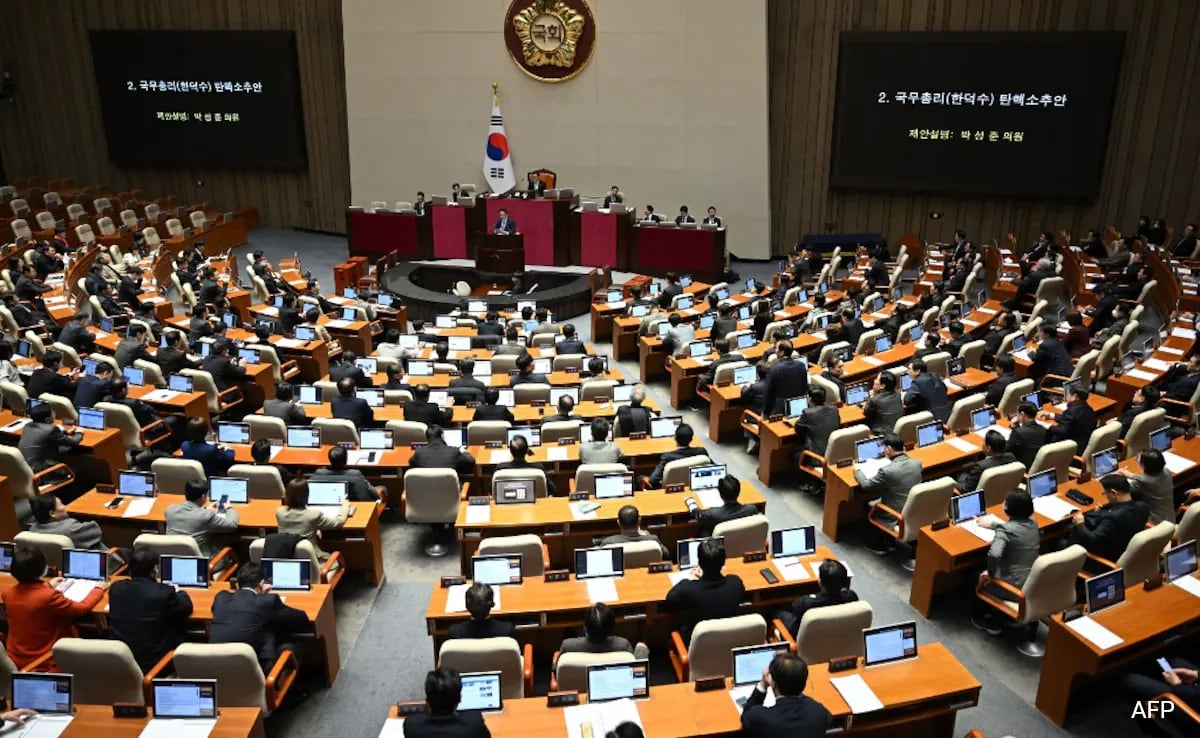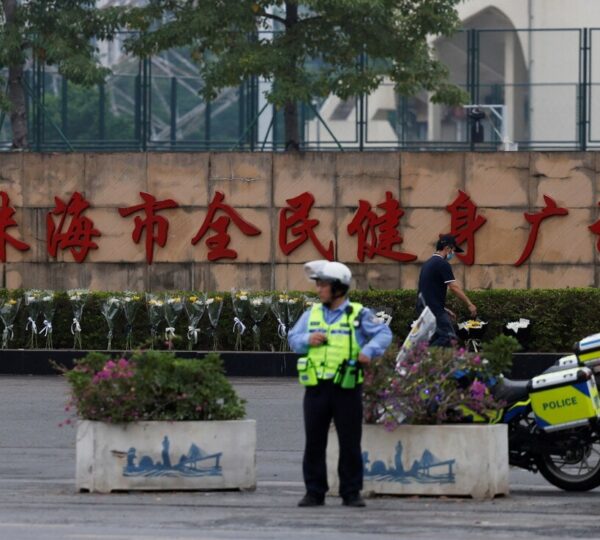South Korean lawmakers impeached the acting president on Friday as the country struggles to shake off political turmoil sparked by his predecessor’s declaration of marital law.
Here’s a look at how the second impeachment of a South Korean head of state happened in just two weeks, and what might happen next.
WHAT HAPPENED TODAY?
South Korean lawmakers impeached the acting president. All 192 MPs who voted in the session cast their ballots in favour of removing acting President Han Duck-soo.
Han took on the role on December 14, when President Yoon Suk Yeol was suspended from the post by a parliamentary vote following his short-lived attempt to enforce martial law.
A constitutional court will decide whether Yoon’s removal will be permanent.
Opposition lawmakers said they voted to oust Han because he was obstructing the court by refusing to appoint three new judges to the nine-member bench.
Six judges must uphold the decision to oust Yoon. Because the bench currently only has six members, a single vote could see him reinstated.
The opposition party’s impeachment motion said Han was “intentionally avoiding the special investigation to probe those involved in the insurrection”.
They said his actions were “in violation of a public official’s duty to uphold the law”.
WHAT HAPPENS NEXT?
Han said he “respects the parliament’s decision”. Like Yoon, he is now also waiting for the constitutional court to decide whether his removal will be permanent.
The court has 180 days to render its verdict.
Deputy Prime Minister and Finance Minister Choi Sang-mok will now become the acting president.
Choi said in a statement that “minimising governmental turmoil is of utmost importance at this moment” and on Friday convened a meeting of the National Security Council.
The crisis that ousted Han may also cascade down to Choi. He will also be pressured by the opposition to accept the appointment of constitutional judges.
If he refuses he may also face his own impeachment — opening a new chapter of absurdity.
WHO IS CHOI SANG-MOK?
Choi now has three roles: acting President, Prime Minister and Finance Minister of South Korea.
“We’ve had an acting president before,” said Lee Jun-han, a politics professor at Incheon National University. “But this is the first time we’ve had a substitute for a substitute.”
Lee said that despite Choi’s many roles “it won’t be impossible” for him to do them all. Choi is a tested bureaucrat with decades of experience in the finance ministry.
At a recent press conference he pledged to steer the economy through political turmoil.
“We are confident that our robust and resilient economic system will ensure rapid stabilisation,” he said.
WHAT DO LAWMAKERS SAY?
Opposition lawmakers cheered when National Assembly speaker Woo Won-shik said only a simple majority was needed in the 300-member parliament to impeach Han.
The opposition won a majority in parliamentary elections in April, meaning he was easily removed.
The ruling People’s Power Party (PPP) lawmakers protested in parliament, arguing that a two-thirds majority should have been required to remove Han.
The PPP immediately filed an injunction against Woo, saying his “actions are fundamentally invalid” because they have violated the constitution.
WHAT ABOUT YOON?
The constitutional court held its first preliminary hearing on the validity of Yoon’s impeachment on Friday, with the suspended president’s legal team attending.
The court said in a statement the hearing would focus on his decision to declare martial law and mobilise military and police forces to blockade parliament.
With the court deliberating Yoon’s impeachment, a decision on Han’s impeachment will take more time, predicted Kim Hyun-jung, a researcher at the Korea University Institute of Law.
“The seriousness of the presidential impeachment, the significance of the office, and the current state of extreme political turmoil all underscore the urgency of addressing this matter swiftly,” said Kim.
“The court cannot do two things at once.”






